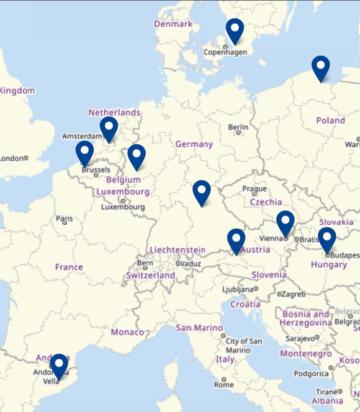Help us make the FRA website better for you!
Take part in a one-to-one session and help us improve the FRA website. It will take about 30 minutes of your time.

EU Charter of Fundamental Rights
Preambuła
Narody Europy, tworząc między sobą coraz ściślejszy związek, są zdecydowane dzielić ze sobą pokojową przyszłość opartą na wspólnych wartościach. Świadoma swego duchowo-religijnego i moralnego dziedzictwa, Unia jest zbudowana na niepodzielnych, powszechnych wartościach godności osoby ludzkiej, wolności, równości i solidarności; opiera się na zasadach demokracji i państwa prawnego. Poprzez ustanowienie obywatelstwa Unii oraz stworzenie przestrzeni wolności, bezpieczeństwa i sprawiedliwości stawia jednostkę w centrum swych działań.
Unia przyczynia się do ochrony i rozwoju tych wspólnych wartości, szanując przy tym różnorodność kultur i tradycji narodów Europy, jak również tożsamość narodową Państw Członkowskich i organizację ich władz publicznych na poziomach: krajowym, regionalnym i lokalnym; dąży do wspierania zrównoważonego i stałego rozwoju oraz zapewnia swobodny przepływ osób, usług, towarów i kapitału oraz swobodę przedsiębiorczości.
W tym celu, w obliczu zmian w społeczeństwie, postępu społecznego oraz rozwoju naukowego i technologicznego, niezbędne jest wzmocnienie ochrony praw podstawowych poprzez wyszczególnienie tych praw w Karcie i przez to uczynienie ich bardziej widocznymi.
Niniejsza Karta potwierdza, przy poszanowaniu kompetencji i zadań Unii oraz zasady pomocniczości, prawa wynikające zwłaszcza z tradycji konstytucyjnych i zobowiązań międzynarodowych wspólnych Państwom Członkowskim, europejskiej Konwencji o ochronie praw człowieka i podstawowych wolności, Kart Społecznych przyjętych przez Unię i Radę Europy oraz z orzecznictwa Trybunału Sprawiedliwości Unii Europejskiej i Europejskiego Trybunału Praw Człowieka. W tym kontekście, sądy Unii i Państw Członkowskich będą interpretowały Kartę z należytym uwzględnieniem wyjaśnień sporządzonych pod kierownictwem Prezydium Konwentu, który opracował Kartę, i za których uaktualnienie odpowiada Prezydium Konwentu Europejskiego.
Korzystanie z tych praw rodzi odpowiedzialność i nakłada obowiązki wobec innych osób, wspólnoty ludzkiej i przyszłych pokoleń.
Unia uznaje zatem prawa, wolności i zasady wymienione poniżej.



